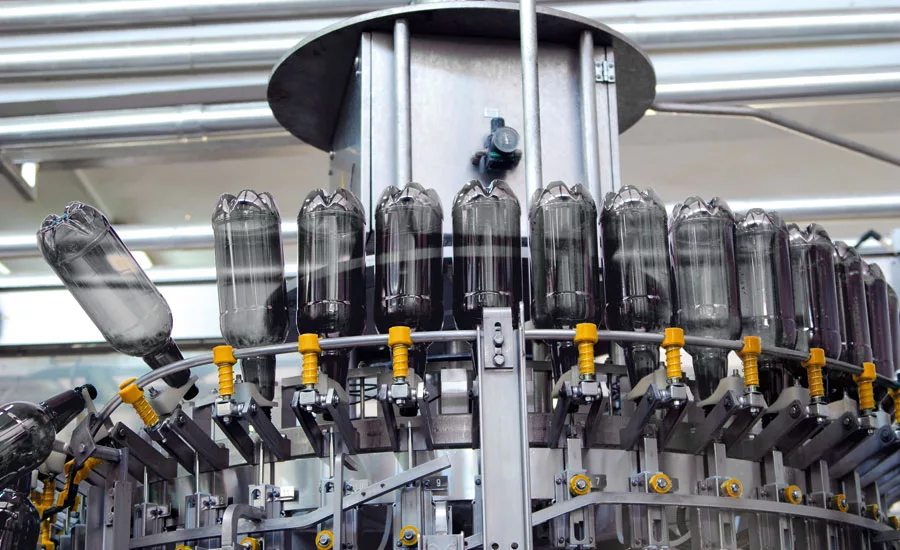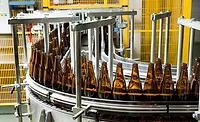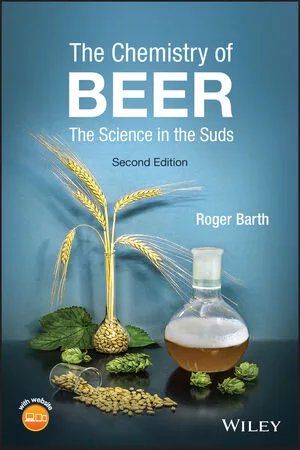Food-grade lubricants further safety practices in beverage plants
Sustainability measures drive further innovation in lubricants

Educators of young children employ numerous songs, charts and the like to encourage students to wash their hands to maintain a safe, germ-free classroom. Although warehouse manufacturers might not be singing about washing your hands to the tune of “Twinkle, Twinkle Little Star,” they are taking other steps to ensure that warehouse operations protect the products that are being processed.
One way that operations are doing this is through the use of food-grade lubricants. “For food manufacturing facilities, the use of food-grade lubricants is of utmost importance,” says Marius Czech, food market manager of Klüber Lubrication NA LP, Londonderry, N.H. “The requirements on today’s food-grade lubricants are the same as for industrial lubricants, but the list of additives is very limited. The end-users expect the same or improved performance as they expect from industrial lubricants. It is therefore expected that any lubricant manufacturer invests in [research and development] (R&D) in order to fulfill these requirements.”
Czech explains that beverage facilities could benefit by switching over to an all food-grade lubricant practice.
“Converting to all food-grade lubricants reduces contamination risk,” he says. “Using all NSF H1 registered lubricants in a facility can eliminate sources of potential contamination with hazardous substances. In addition, the necessity to use food-grade lubricants in beverage operations is driven by the end-users.”
A whitepaper by Jim Girard, vice president and chief marketing officer for Lubriplate Lubricants Co., titled “The Continuing Evolution of Food Grade Lubricants,” also highlights the benefits that manufacturers have gained from advancements within food-grade lubricants.
“The most important aspect in the evolution of food-grade lubricant technology is that H-1/food-grade lubricants can now effectively handle every machinery lubrication application at a food- and beverage-processing plant,” he writes. “This produces lubricant inventory consolidation, is good for the food- and beverage-processing plant employees, and — most importantly — gives added protection to the ultimate consumer.”
Although food-grade lubricants can reduce contamination, it also is important that plant employees are properly trained about the use of such products.
“Food safety concerns are best addressed through educating the employees working for food-manufacturing facilities,” Czech explains. “On-site consultation and training help to understand the importance of the proper use of food-grade products.”
As a manufacturer of specialty lubricants, Klüber Lubrication educates its customers on best practices to support their operations.
“Beverage plants recognize the positive impact the right lubrication program can have on their overall production process,” Czech says. “Support in setting up an ideal lubricant storage area, the proper labeling of machinery to make sure the right lubricant is used on the right application, as well as the importance of educating the operators are some of the trends we see.”
Czech adds that a successful lubrication program can offer real cost benefits in three areas: labor, energy consumption and spare parts inventory (components).
“Every single application has its challenge and we evaluate each application to determine the best option,” he says. “In order to reach high performance, you need high-quality lubricants. High-quality lubricants start with high-quality ingredients coupled with our rigorous inspection processes, as well as our pre-delivery inspections are important steps of our process to guarantee the best quality.”
A sustainable future
Like various aspects of beverage development, lubricant manufacturers also are receiving requests for solutions that address sustainability.
“Sustainability, extended maintenance intervals and technical support requirements are some of the other concerns we are hearing from beverage manufacturers,” Czech says.
Emphasizing what a topical subject sustainability has become, Czech details the importance of using proper lubricants to maintain sustainable operations.
“Using the right lubricant in the right application can reduce energy, extend maintenance intervals for as long as possible, resulting in less waste,” he says. “Minimizing residue formation to avoid the waste of water needed for cleaning [is] also [an] important area to consider.”
Recognizing the value sustainability will have for lubricants going forward, Czech foresees this trend only growing.
“Sustainability is an important topic when we speak about future developments,” he says. “Renewable ingredients, which do not have a negative effect on the environment, with even better performance are the topics for the future; i.e., the development of water-based lubricants.” BI
Looking for a reprint of this article?
From high-res PDFs to custom plaques, order your copy today!







